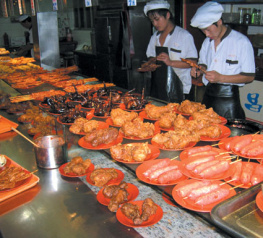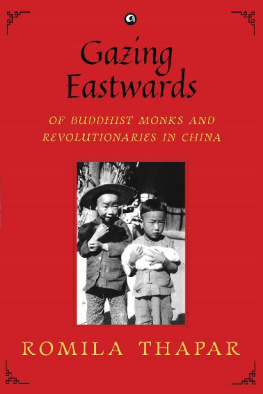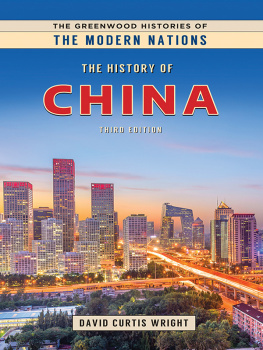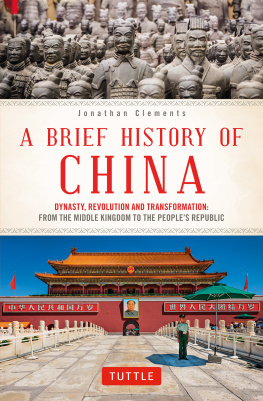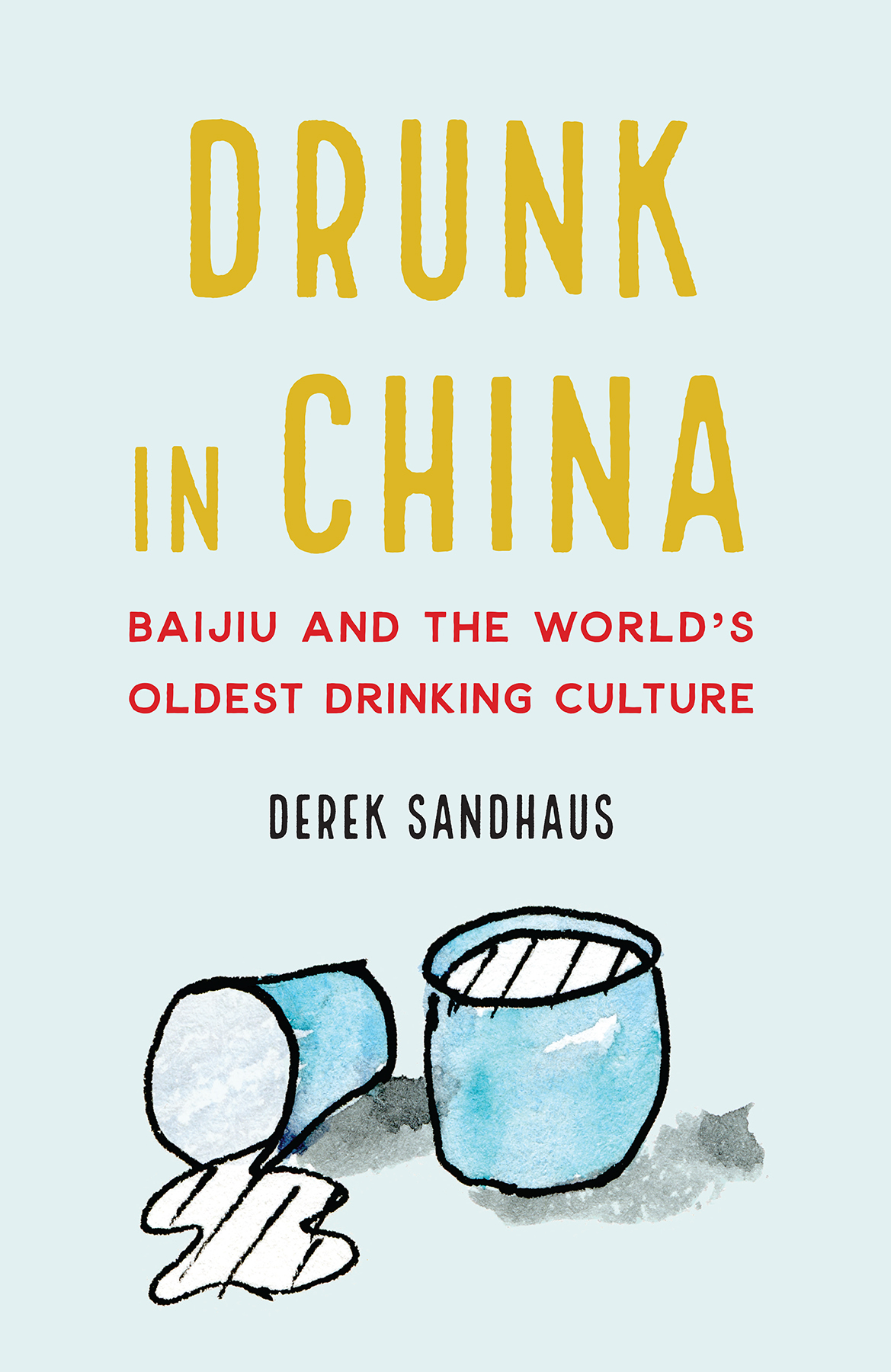
Drunk in China takes readers on a spirited, entertaining journey through the lens of Chinas favorite and often misunderstood drink, baijiu. Derek Sandhaus illuminates Chinese history and contemporary life in his devoted quest to embrace and relish a traditional Chinese liquor.
Jen Lin-Liu, author of Serve the People and On the Noodle Road and founder of Beijings Black Sesame Kitchen cooking school
I have learned so much from Derek Sandhaus over the years, and Drunk in China is no exception. Its not just about baijiualthough it offers a master class on the subject. Its about China and its history, culture, and relationship with the West, told through the perspective of a witty, generous storyteller.
Clay Risen, deputy opinion editor at the New York Times and author of Single Malt: A Guide to the Whiskies of Scotland
Who knew that the history of China was so wrapped up in its drinking culture? This ramble through time and geography is an intoxicating romp through a boozy China. Sandhauss ability to turn a phrase keeps us laughing all the way.
Scott D. Seligman, author of The First Chinese American
Drunk in China
Baijiu and the Worlds Oldest Drinking Culture
Derek Sandhaus
Potomac Books
An imprint of the University of Nebraska Press
2019 by Derek Sandhaus
Cover designed by University of Nebraska Press; cover drawing by Angie Lee.
All rights reserved. Potomac Books is an imprint of the University of Nebraska Press.
Library of Congress Cataloging-in-Publication Data
Names: Sandhaus, Derek, author.
Title: Drunk in China: Baijiu and the worlds oldest drinking culture / Derek Sandhaus.
Description: Lincoln: Potomac Books, an imprint of the University of Nebraska Press, [2019] | Includes bibliographical references and index.
Identifiers: LCCN 2019005300
ISBN 9781640120976 (cloth: alk. paper)
ISBN 9781640122598 (epub)
ISBN 9781640122604 (mobi)
ISBN 9781640122611 (pdf)
Subjects: LCSH : Alcoholic beveragesChina. | Drinking of alcoholic beveragesSocial aspectsChina. | LiquorsChina.
Classification: LCC TP 590.6. C 6 S 26 2019 | DDC 394.1/30951dc23
LC record available at https://lccn.loc.gov/2019005300
The publisher does not have any control over and does not assume any responsibility for author or third-party websites or their content.
To Catherine, for supporting my best and worst habits
O wine, who gave to thee thy subtle power?
A thousand cares in one small goblet drowned!
Du Fu, Setting Sun
Contents
A great many people helped bring this book into existence. I owe a supreme debt to my Chinese teacher, friend, and sometimes researcher Duan Li. Your enthusiasm for this project, assistance with translations, and logistical support were invaluable. I hate to think of how this book would have turned out without you.
I would like to thank all the interviewees for taking the time to share their experiences and insights. To those who welcomed me into their businesses and homes or invited me to sit at their baijiu table, I am humbled by your kindness. I would also like to thank everyone who helped arrange factory visits and made travel arrangements.
To my fellow travelersTodd, Alex, and JoelI thank you and your livers. A hearty ganbei also to my friends and drinking companions in Chengdu: Grace, Johan, Walter, Eitan, Dan, Lu Jing, Peter, Will, Pope, Sherry, the other Dan, Daniel, and Soojin. To those who subjected themselves to the Shanghai trials, Jim Boyce and Jeannie Cho Lee in particular, your help was much appreciated.
I leaned heavily on the work of experts who know far more about drinks than I and who pointed me in the right direction when I needed it most. Zhong Jie, Zhong Yuchen, and Yang Chen all deserve a special thanks, as do Peter Kupfer, Patrick McGovern, and David Wondrich. Thanks go to my former Shanghai colleagues, foremost among them Jessica Lee, who shared her thoughts and extended family. Graham Earnshaw, Pete Sweeney, and Andrew Galbraith all shared drinks and ideas that found their way onto these pages. Authors Scott Seligman and David Leffman also provided sage counsel.
Every bartender who contributed a cocktail recipe to this book deserves my thanks and praise. Paul Mathew in particular has gone beyond the call of duty in supporting my work over the years and should be singled out for his commitment to promoting baijiu. Many thanks to earliest readers for their feedback, those already named but also especially Catherine and my mother. Future readers would also thank you if they could see the earliest drafts.
Finally, I want to thank the people who turned this book into a reality. My publisher, Potomac Books, particularly Tom Swanson and Abigail Stryker; my editors, Susan Silver and Ann Baker; and my agent, Peter Bernstein, who made sure my book found the right home. As for those brave souls who shared a baijiu with me along the way, there are too many to name, let alone remember. I am grateful to you all.
Jiu, pronounced jyo, is the Chinese word for alcoholic beverages. Thousands of years ago there were other Chinese words for alcohol, delineated by their ceremonial function and production techniques, but jiu won out. All Chinese alcohols are today known as jiu: baijiu (white alcohol, for spirits), huangjiu (yellow wine, grain wines), pijiu (beer), putaojiu (grape wine), and so forth. The imprecise nature of the wordoften used casually when describing any alcoholic beveragemakes a literal translation difficult in most cases, so I have opted to assign meaning to it according to the context in which it is used. This allows greater ease of reading while avoiding too much tedious repetition.
Subcategories of baijiu are given as literal translations of the official Chinese xiang xing (aroma style) classification systemstrong aroma, light aroma, and so on. There are at least a dozen styles of baijiu and, though their names give no indication of it, they are largely divided by regional production techniques. Readers should note that each is a distinct spirit, like whiskey or gin, and most of them bear little in common aside from a shared Chinese origin.
Translations of Chinese-language texts and interviews are my own unless otherwise specified. I have included a list of references to outside translations in the appendix for further reading. In all instances I have attempted to translate in such a way that preserves the intended rather than literal meaning. In transliterating Chinese words in general, I have attempted to use the contemporary pinyin romanization system to write Mandarin words and phrases, but there are notable exceptions. If a brand name is commonly written in an older romanization systemKweichow Moutai as opposed to Guizhou MaotaiI have left it as it is printed on the bottle.
I have also refrained from rewriting published words of past commentators. In all such cases context should make my meaning clear. All interviews were recorded for accuracy, and informal firsthand anecdotes are related as remembered by the author. Some names have been changed or omitted at the speakers request or the authors discretion.
Circa 7000 BCE | The oldest known alcoholic beverage is created at the Jiahu settlement near the Yellow River. |
2070256 BCE | Alcohol plays a prominent role in religious and secular society during the three ancient Chinese dynasties (Xia, Shang, and Zhou). Elaborate bureaucracy guides production and consumption. |
Next page


